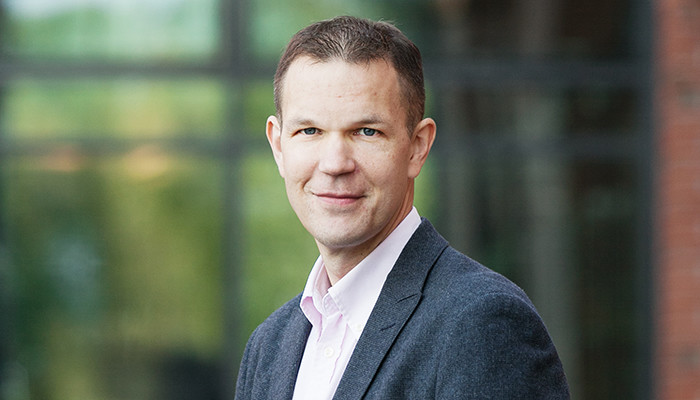Smart lighting is a growing field
Professor of Practice Jaakko Ketomäki believes, houses will be sold in the same way that cars are – the equipment and technology will be decisive.

Smart lighting for building services engineering is a field with large untapped potential. This is the opinion of Professor of Practice Jaakko Ketomäki, who took up his position in the Department of Electrical Engineering and Automation on 15 August.
‘The technology that could be used in smart lighting has already been in existence for a long time. Growth in the field requires successful solutions and installations and especially the creation of commercial products that meet the demand. As well as new construction projects, renovation projects need to be taken into consideration’, Ketomäki envisions.
In addition to his role as Professor of Practice, he also serves as Senior Scientist at the Technical Research Centre of Finland (VTT) and solves challenges related to interactive buildings in close cooperation with businesses.
‘The goal is to get businesses interested and actively involved as well as to locate the lines of research that are needed in order to achieve growth in the field.’
A need for more knowledge
There are still a number of questions that need resolving in order to bring breakthrough in the smart lighting sector. In addition to the issue of suitable applications, another challenge on the researchers’ table is that of how smart lighting can in the future be made to operate such that users don’t even notice it.
‘This would mean, for example, more efficient use of daylight or the utilisation of various different lights in the evening when going to sleep. More knowledge is needed on what the human benefits of smart lighting are.’
Ketomäki compares these developments to the quick entrance of LEDs into the market. He believes the same thing will happen with smart lighting.
‘The need for light and warmth is a very individual matter for people, which means that researchers must take a broad perspective. When smart lighting starts to raise well-being and the management of indoor conditions improves, consumers will get interested and a corresponding product demand will be generated in the markets.’
The development of smart building services engineering also creates new workplaces in the field. Ketomäki urges future experts to embrace multidisciplinarity.
‘In addition to broad general knowledge, it is worth focusing on several aspects at a deeper level. Networking nowadays plays a particularly important role, as does listening to other people. Remember to only do the things which are, so to speak, your things,’ he recommends.
Photo: Aino Huovio

